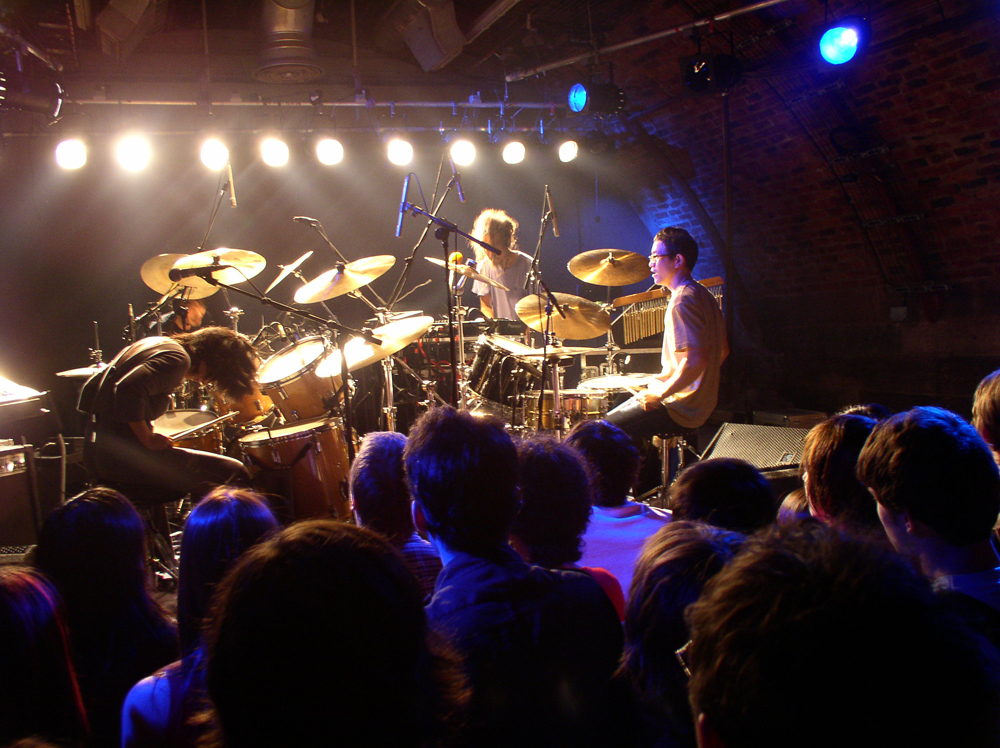
V∞redoms
Rare UK performance by legendary Japanese post punk group during their 4 drummers + synth / vocals phase.
Arika have been creating events since 2001. The Archive is space to share the documentation of our work, over 600 events from the past 20 years. Browse the archive by event, artists and collections, explore using theme pairs, or use the index for a comprehensive overview.

Rare UK performance by legendary Japanese post punk group during their 4 drummers + synth / vocals phase.

Can we use sound, repetition and difference to personally and collectively engage with space, time and labour?

A stroboscopic and intense sensory overload of flashing abstract forms, cut to ribbons by modified projectors.
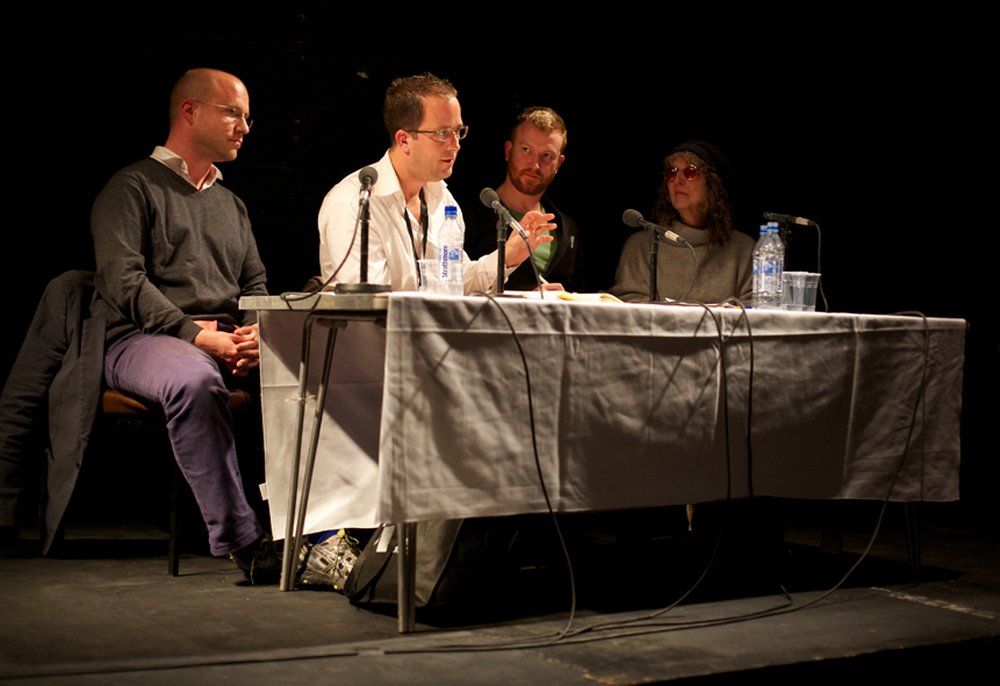
Electronic music, time, thought, the word, and consecutive matters
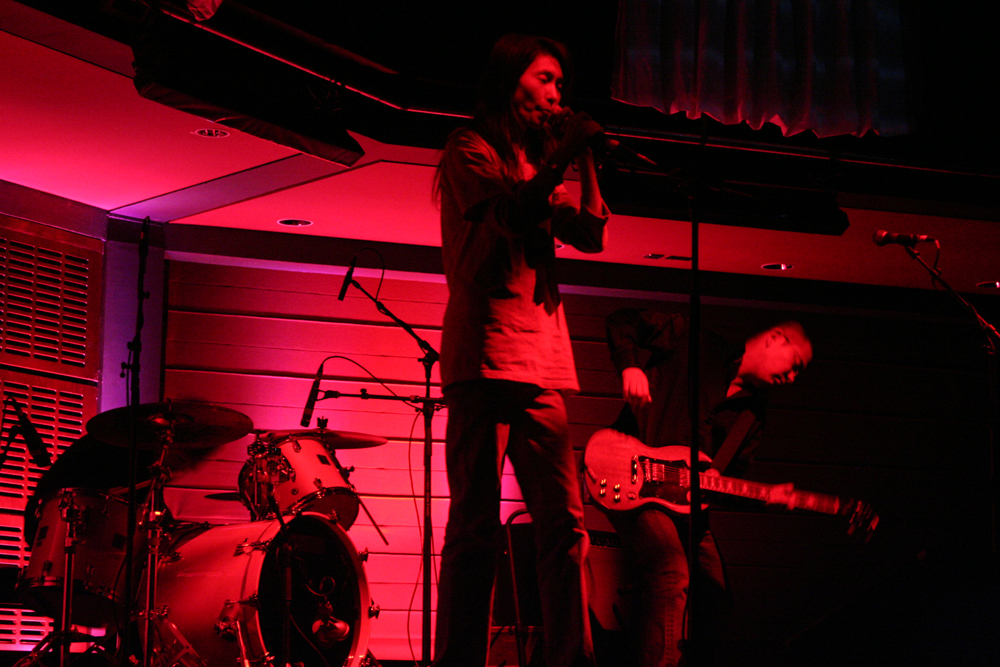
Three iconic figures from the Japanese underground assembled as a trio to stand in for the advertised duo of Junko and Jerome Noetinger who was unable to attend the festival due to illness.

Birthed from the collective stagger in global consciousness of the late 50’s and 60’s, this programme celebrates epochal, groundbreaking films that all address sound in their own way and that have opened pathways to experimentation.

Originally billed as a duo of Ingar Zach and Derek Bailey, John Butcher stood in for Bailey at the last minute.
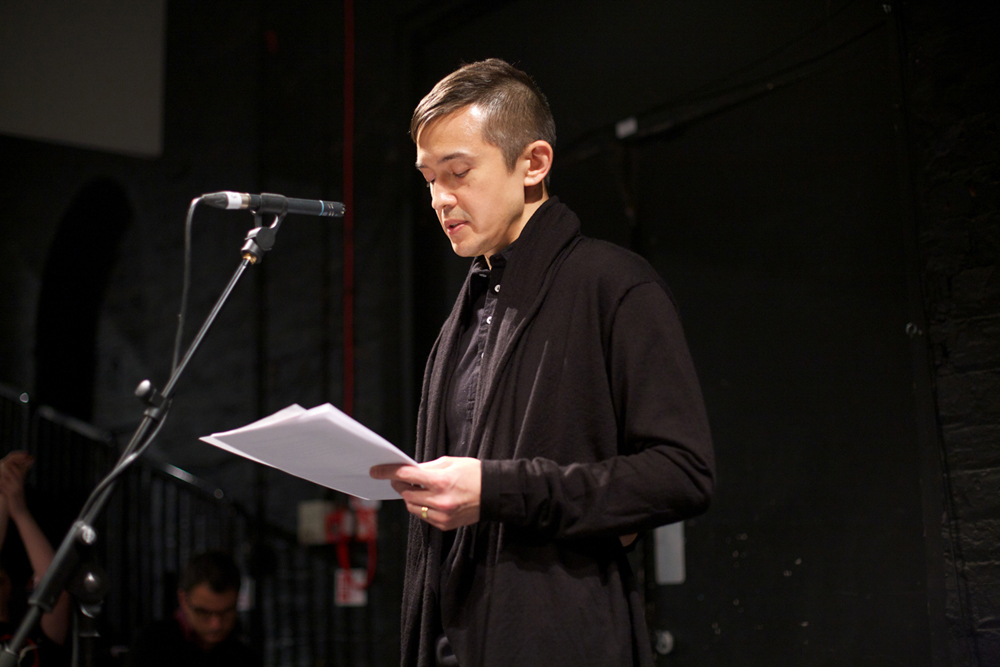
A chat with Eugene Thacker. Can we rethink the world as unthinkable, and without us?
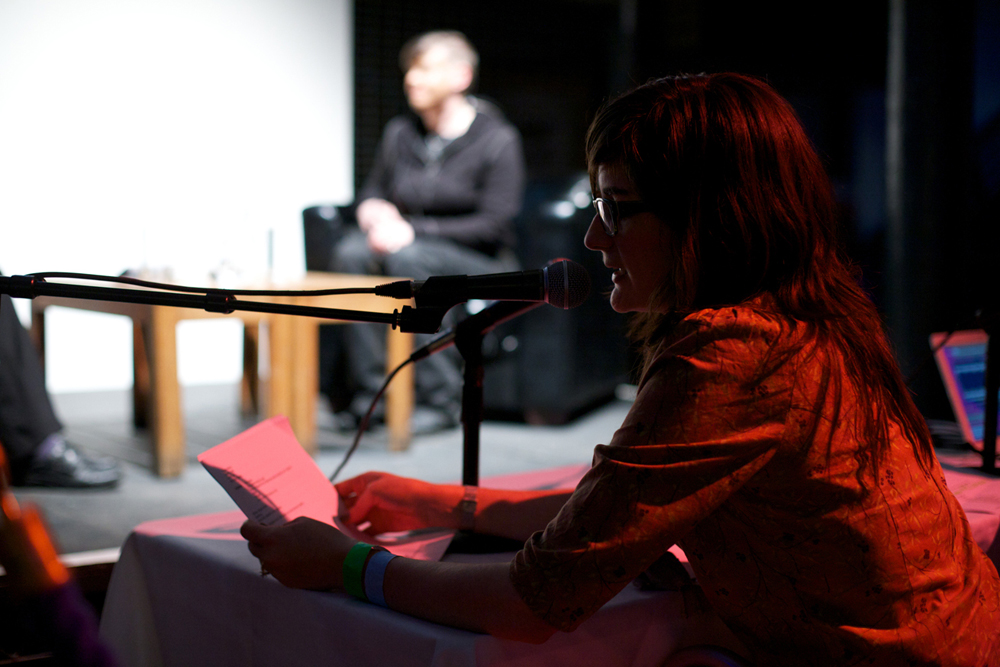
A series of reality dramas happening over the course of the weekend.

A kind of an informal overview of INSTAL.

A double bill. A simple first person, Dundee-specific tracking shot that approaches the cinema/ screen/ space the film will eventually be shown in and in Brazilian opera house, a fixed camera gazes at a local audience from the stage: a choir, hidden in the orchestra pit, sings and gradually fades to silence.

This set continues on from the Bud Neill inspired clatter using the contents of the Usurper twin’s pockets.